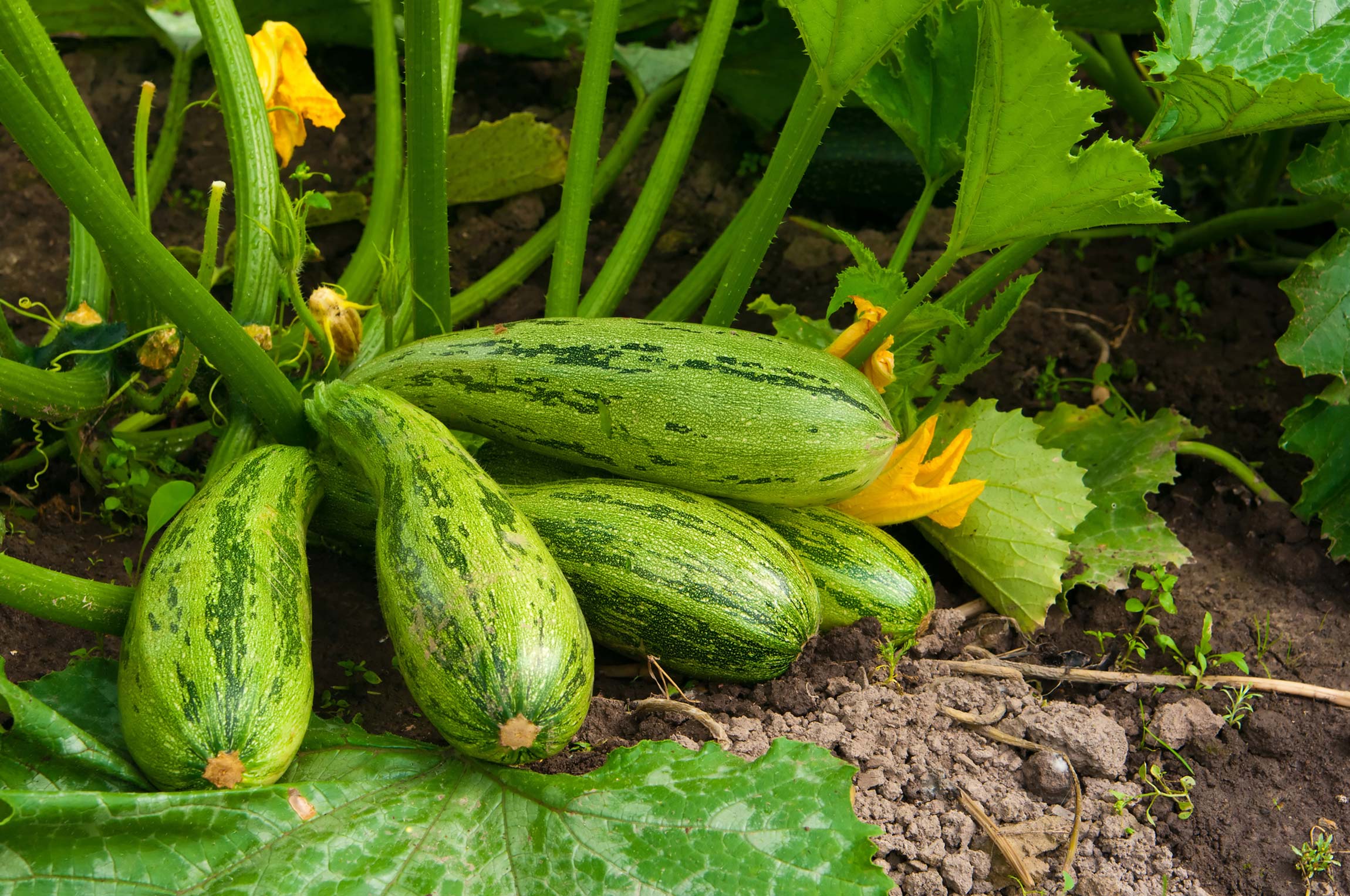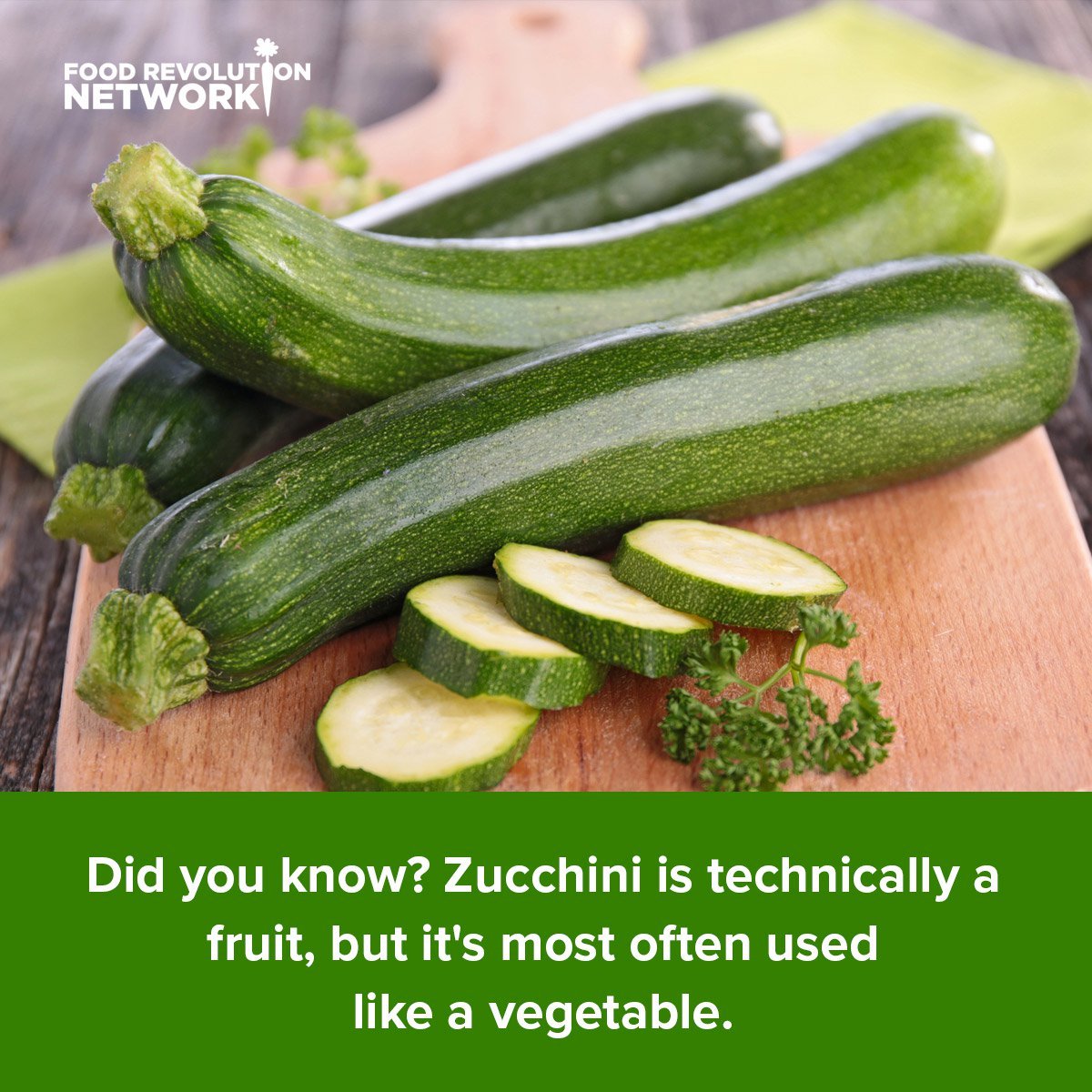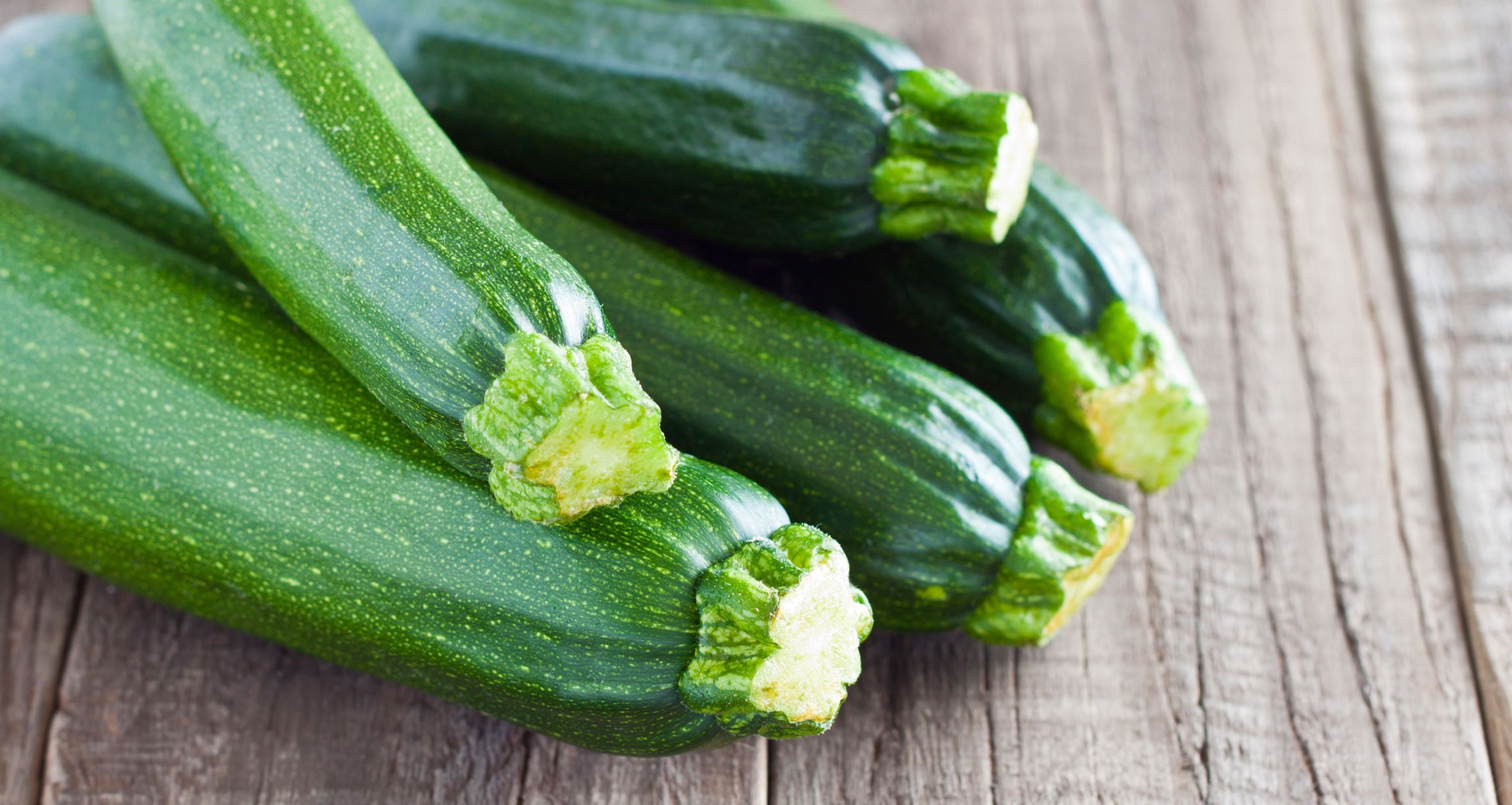By Patrick Quillin, PhD, RD, CNS • Originally published on GettingHealthier.com
Living in Tulsa, OK, for 11 years, I asked the locals if crime was a problem. They replied, “Well, in August you better be sure to lock your car, because otherwise someone might put a bag of zucchini in your car.” People who grow zucchini, like me, harvest more than we can eat.
Zucchini, a summer squash, is a member of the gourd family. It originated from Central America from where it has spread to the rest of the world.
This popular succulent vegetable does well in warm weather, in places with moist, fertile soil. It takes 35 to 60 days from planting to first harvest. The plant grows to a height of two and a half feet. For best flavor, zucchini fruits are harvested when they are 4-8 inches.
Darker fruits are usually higher in nutrients. But what are the nutritional benefits of zucchini?
Editor’s Note: Botanically, zucchini is a fruit, but it’s most often used like a vegetable.
What Is The Nutritional Value of Zucchini?
Zucchini contains zero fat, and is high in water and fiber. It also contains significant amounts of vitamins B6, riboflavin, folate, C, and K, and minerals, like potassium and manganese.
The summer squash also contains antioxidant and anti-inflammatory phytonutrients. So is zuccini healthy? Yes! Zucchini, also known as courgette, is a nutrient-dense food that you should include in your diet.
Zucchini nutrition facts: 1 medium zucchini has approximately 33 calories, 2g of protein, 7g of total carbohydrates (2g fiber, 5g sugars), 31 mg calcium, 512 mg potassium, 35 mg magnesium.
Here is more zucchini nutritional data, from the USDA for one medium zucchini squash:
- Carbohydrate 6.1 g
- Fiber 1.96 g
- Sugars, total 4.9 g
- Calcium 31.4 mg
- Iron .725 mg
- Magnesium 35.3 mg
- Phosphorus 74.5 mg
- Potassium 512 mg
- Sodium 15.7 mg
- Zinc 0.627 mg
- Vitamin C 35.1 mg
- Thiamin 0.088 mg
- Riboflavin 0.184 mg
- Niacin 0.884 mg
- Pantothenic acid .4 mg
- Vitamin B6 .319 mg
- Folate 47 µg
- Vitamin A 19.6 µg
Zucchini Benefits: 8 Reasons to Eat More of This Squash
How healthy is zucchini? Very healthy, especially if you steam it and leave the dark green outer layer. It’s a good source of fiber and, as long as you don’t fry it or eat with foods that contain ingredients with known toxins, zucchini is healthy! Here are eight health benefits of zucchini.
1. Zucchini improves digestion
Incorporating zucchini in your diet can help improve digestion including reducing the incidence of constipation and other digestive issues.
Zucchini is high in water. It also contains significant amounts of fiber, electrolytes, and other nutrients that are necessary for a healthy digestive system.
Regular consumption of zucchini can also help prevent ulcers, IBS, and colon cancer.
2. Nutrients in zucchini and squash slow down aging
Aging results from the activity of toxins, free radicals, and inflammation that the body is exposed to over the years. These poisons and inflammation can be reduced by antioxidants and anti-inflammatory foods.
Zucchini is rich in antioxidants and anti-inflammatory phytonutrients, which help rid the body of free radicals and excess inflammation.
3. Green squash benefits blood sugar levels
High blood sugar levels and diabetes are problems that are worsened by a diet high in (unhealthy) carbohydrates and low in fiber.
By including zucchini in your diet, you increase the intake of fiber. You can also reduce your carbohydrate intake because you will feel full for longer. These diet changes can help reduce your blood sugar levels and increase insulin sensitivity.
This can mean that your body no longer requires excessive amounts of insulin to process sugar. This can change your risk of developing diabetes. Studies show that including at least 30 grams of fiber in your daily diet lowers your risk of getting diabetes significantly.
4. Zucchini supports healthy circulation and a healthy heart
Zucchini is low in fat and sodium, but high in fiber and potassium. These properties help to maintain healthy blood circulation.
Low sodium and high potassium help to maintain healthy blood pressure while fiber, such as the polysaccharide in zucchini, lowers cholesterol levels.
This combination works synergistically to maintain good circulation, which is necessary for healthy blood pressure and a healthy heart.
5. Zucchini helps improve eye health
Zucchini is a good source of health-protecting antioxidants and phytonutrients, including vitamin C, beta-carotene, manganese, zeaxanthin, and lutein.
Zeaxanthin and lutein are especially useful in maintaining and improving eye health by fighting free radicals. This reduces the risk of developing age-related eye conditions like glaucoma, cataracts, and macular degeneration.
You can also use zucchini to treat puffy eyes by placing slices of raw zucchini over the eyes. Leave the slices in place for about 30 minutes and repeat several times in a day.
6. Eating zucchini and squash can boost energy
Because zucchini is a rich source of B-vitamins, especially folate, riboflavin, and B6, it can help to boost energy production in the body. This reduces fatigue and improves moods.
The body requires B-vitamins for protein and carbohydrate metabolism. These vitamins also aid in various brain functions including cognition.
7. You can add zucchini to weight loss plans
Because zucchini is low in calories and high in water and fiber, zucchini is a great food for weight loss.
It is worth noting that excess body weight usually results from regular consumption of carbohydrate and sugary foods.
By including zucchini in your diet, you increase the fiber and water content of your food. This means that you will feel full for longer and end up eating less. In the long term, you will lose some of your excess weight.
8. Zucchini nutrition protects against oxidation and inflammation
Zucchini is rich in antioxidants and anti-inflammatory compounds, including vitamins A and C, glutathione peroxidase, and superoxide dismutase. Large amounts of these compounds are found in zucchini skin. For this reason, you should eat the skin together with the flesh.
Eating zucchini regularly reduces oxidation and inflammation within the body. This boosts your immunity and protects against diseases associated with inflammation.
All these zucchini benefits are impressive, so aim to add more to your meals, and if you can, try growing your own.
How to Grow Zucchini in Your Backyard

Zucchini grows best during the warmer months, which is why it’s also called summer squash. However, you can still grow it at other times provided it is shielded from extreme cold.
If you get your system down, zucchini plants can become extremely productive with fruits.
If you would like to grow zucchini in your backyard, here is what you need to do:
- Prepare the growing area by digging to loosen the soil.
- Add organic fertilizer and mix well into the soil
- Create mounds of about 2-feet diameter, up to 10 inches high and about four feet apart.
- Plant six seeds per mound, spacing them evenly. Cover each seed with soil no deeper than one inch and water them thoroughly.
- Thereafter, water your zucchini seeds once or twice a week depending on the weather.
- Once the seedlings emerge, wait until the healthiest are about three inches tall. Weed out the weaker ones, leaving two or three in each mound.
- Continue watering as needed, aiming to get the water near the roots.
- When your zucchini start flowering, you may need to add fertilizer to support growth of the fruits. Also water more often, especially if the weather is hot.
- Zucchini takes about 60 days from planting to harvesting. Harvest zucchini as you need them when they are about six inches long. Fruits taste best at this stage. If you let them to grow for too long, they start getting woody and won’t taste too good.
- Enjoy your homegrown zucchini raw or cooked.
Editor’s Note: Several types of genetically engineered zucchini have been approved for sale in the U.S. and in Canada, so if you want to avoid GMOs, we recommend choosing organic zucchini.
You can enjoy zucchini many ways, including the popular zucchini noodles (zoodles) — a pasta alternative. For a different idea, try these Zucchini Bars for a healthy breakfast or snack.
Let us know in the comments: What are your favorite ways to enjoy zucchini?

And if you’re inspired, please LIKE and SHARE this article. Together, we can work for healthy, ethical, and sustainable food for all!
Featured Image: iStock.com/MelanieMaier



